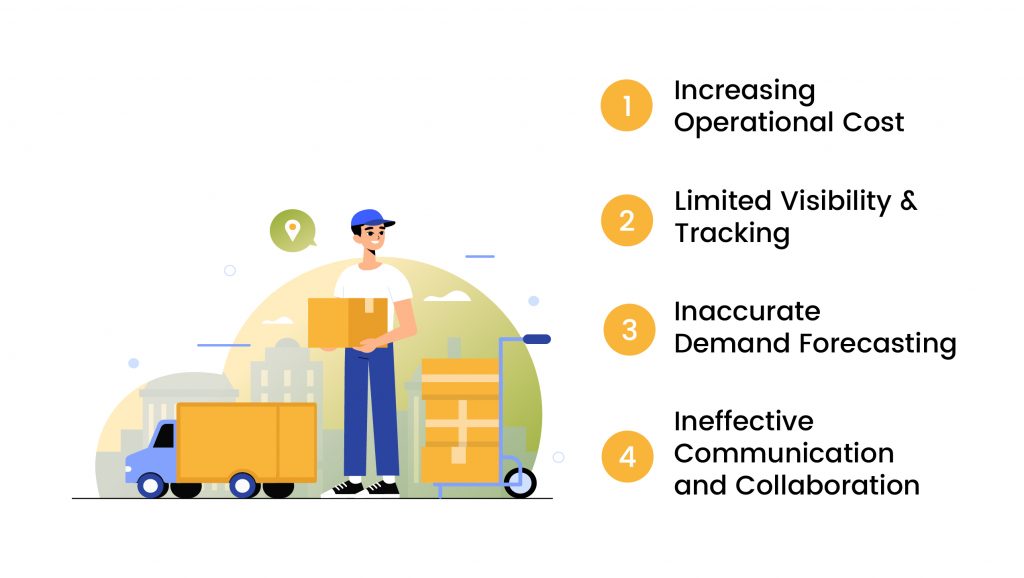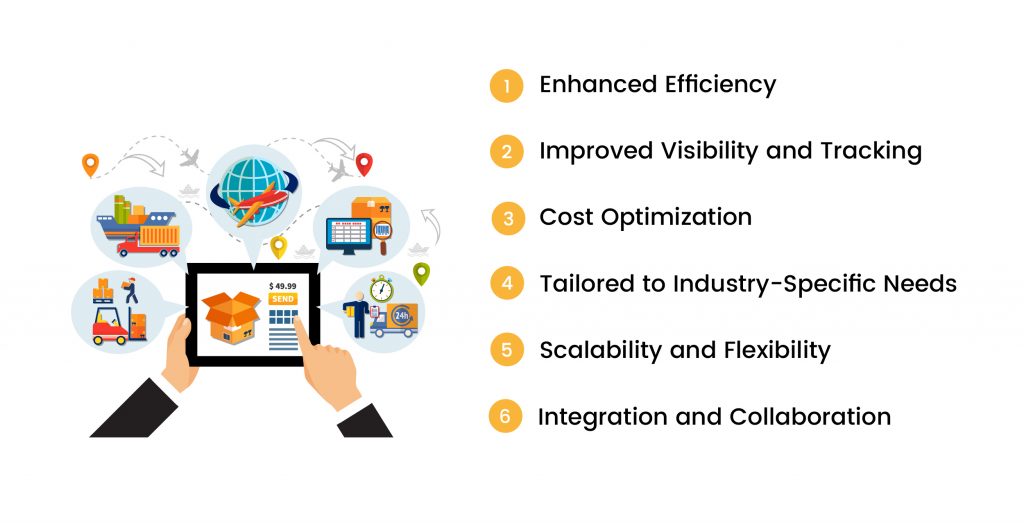In a recent IT spending study, the transportation industry spent a staggering USD 660.8 billion on IT solutions in 2018. With growing investments in infrastructural development and more start-ups focused on developing mobility solutions, this number is projected to grow at a CAGR of 7.7% through 2028.
With the urban population expected to double by 2050, workforce mobility becomes even more crucial, and the transportation sector is expected to witness an even higher surge in demand.
Governments worldwide are investing time and resources in building better transportation networks. Rising investments in infrastructural development stand as a prominent catalyst that’s fueling IT spending in the transportation industry.
In this dynamic landscape, custom software solutions provide transportation companies with the means to stay competitive, enhance operational efficiency, and deliver an exceptional experience to their customers.
Challenges Faced by the Transportation Industry
From rising operational costs and complex logistics to increasing customer expectations and the need for sustainability, transportation, and logistics companies must navigate a rapidly evolving landscape to remain competitive.
The industry today faces a multitude of challenges that require innovative solutions.

1. Increasing Operational Cost
Skyrocketing operational costs have been troubling the transportation and logistics industry for ages from a software point of view. While off-the-shelf or plug-and-play software solutions may seem convenient, they are often the culprits in escalating costs. These pre-packaged solutions may not align perfectly with the specific requirements and intricacies of your operations, resulting in inefficiencies, workarounds, and additional expenses.
2. Limited Visibility & Tracking
Generic software solutions used by the transportation industry struggle to provide the necessary customization and integration required for real-time visibility and comprehensive tracking. These limitations often lead to difficulty in efficiently monitoring assets, managing shipments, and ensuring end-to-end visibility across the supply chain.
Apart from these, off-the-shelf software commonly used in the industry also fails to address the industry-specific complexities and unique operational requirements, resulting in inefficiencies and potential disruptions.
3. Inaccurate Demand Forecasting
Inaccurate demand forecasting can have a detrimental impact on operational efficiency and resource allocation. It can also result in overestimation or underestimation of customer demand, leading to inefficient use of transportation assets, improper route planning, and inventory imbalances. In turn, that leads to increased costs, missed delivery deadlines, and dissatisfied customers.
4. Ineffective Communication and Collaboration
According to the latest research published by The Harris Poll, businesses lose USD 1.2 trillion due to ineffective communication. In a complex transportation network involving multiple parties such as carriers, shippers, suppliers, and customers, effective communication is crucial to ensure smooth workflows and timely information exchange.
Overcoming this challenge requires implementing robust communication channels, standardized protocols, and collaborative platforms that facilitate seamless information exchange and real-time collaboration among all stakeholders involved in the transportation process.
Benefits of Custom Software Solutions in Transportation
Custom software solutions offer significant benefits to the transportation industry by providing tailored solutions that address industry-specific requirements.

1. Enhanced Efficiency
Custom software platforms streamline operations by automating manual processes, such as order management, routing, and inventory control. It eliminates redundant tasks, reduces human error, and improves overall operational efficiency. The software can be designed to fit seamlessly into your existing workflows, thereby minimizing delays.
2. Improved Visibility and Tracking
Custom solutions can be built to seamlessly integrate with your existing tracking systems, GPS technology, and real-time data feeds, offering enhanced visibility and tracking capabilities. Real-time information also allows proactive decision-making to minimize disruptions and ensure on-time deliveries.
3. Cost Optimization
Tailored software solutions enable efficient resource allocation by optimizing routes, scheduling deliveries, and managing inventory. Data analytics help companies identify cost-saving opportunities, such as lower fuel consumption, improved fleet utilization, and reduced logistics costs.
4. Tailored to Industry-Specific Needs
While off-the-shelf software may be cheaper initially, it may not fully meet the unique requirements of the transportation industry. Custom software solutions, on the other hand, are designed specifically to address industry-specific challenges by incorporating features such as load optimization, compliance with transportation regulations, and integration with third-party logistics providers.
5. Scalability and Flexibility
Scalability enables custom software to handle an increasing workload or number of users while maintaining its performance and responsiveness. This flexibility can accommodate future growth and changing business needs as your organization adapts to evolving market dynamics.
6. Integration and Collaboration
Custom software facilitates seamless integration with other systems and technologies, such as ERP systems and warehouse management systems. It enables effective communication and collaboration among stakeholders, including drivers, dispatchers, suppliers, and customers, improving overall coordination and customer satisfaction.
Conclusion
In conclusion, building a custom software solution for your transportation and logistics business is of utmost importance and highly recommended. By investing in a custom software solution, you can streamline operations, improve efficiency, and reduce costs. Additionally, custom software solutions are specifically tailored to meet your industry-specific requirements. They can be customized to integrate with your existing systems, adapt to your changing business needs, and scale along with your company’s growth.
In today’s fast-paced environment, relying on off-the-shelf solutions or manual processes can hinder growth and competitiveness. By investing in a custom software solution, businesses can unlock their full potential, streamline operations, and achieve sustainable success in the dynamic logistics industry. If you need a custom software solution to address your specific business needs and challenges, we are here to help. Our team of experts specializes in developing tailored software solutions for the transportation and logistics industry. Talk to our team today.
